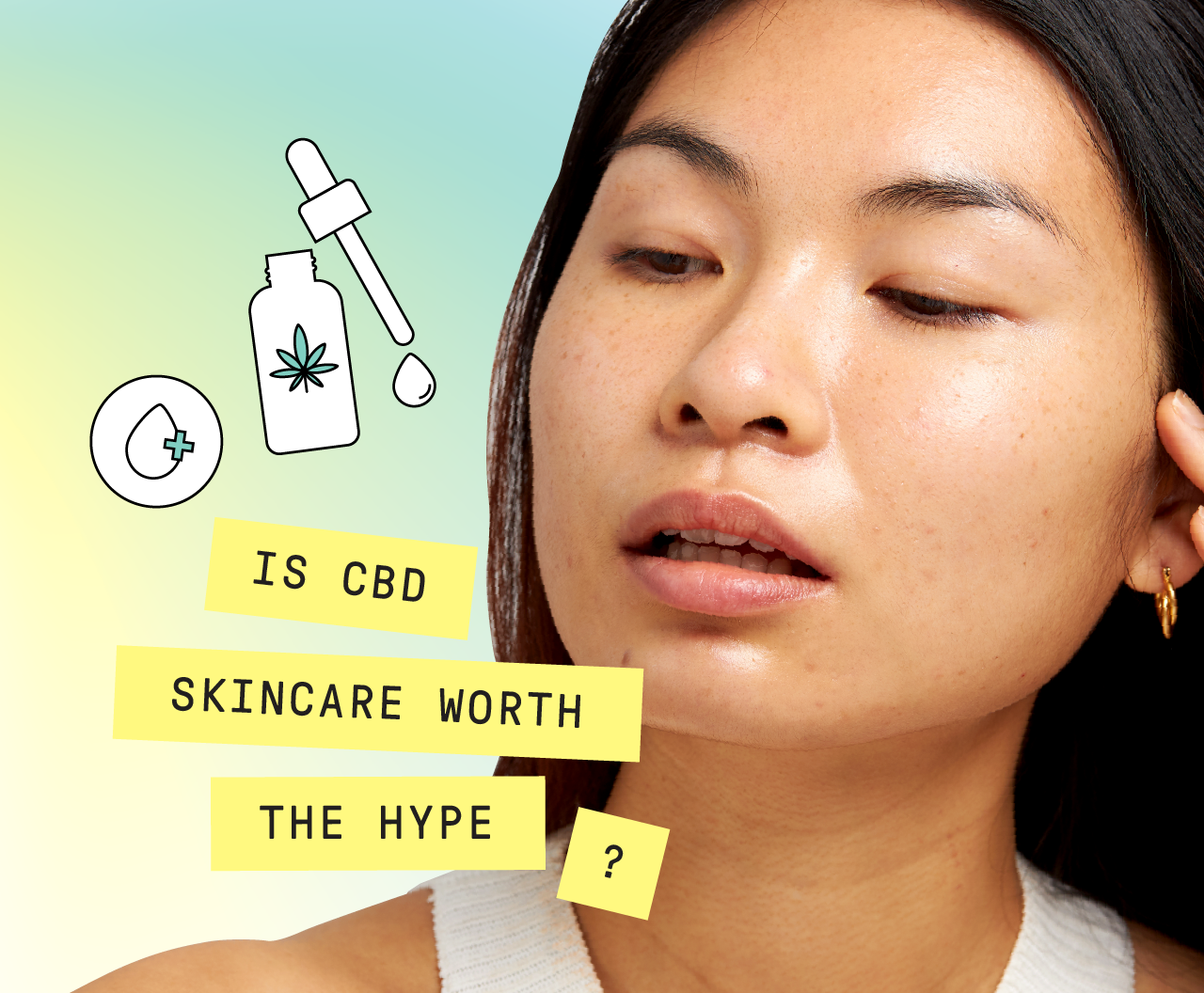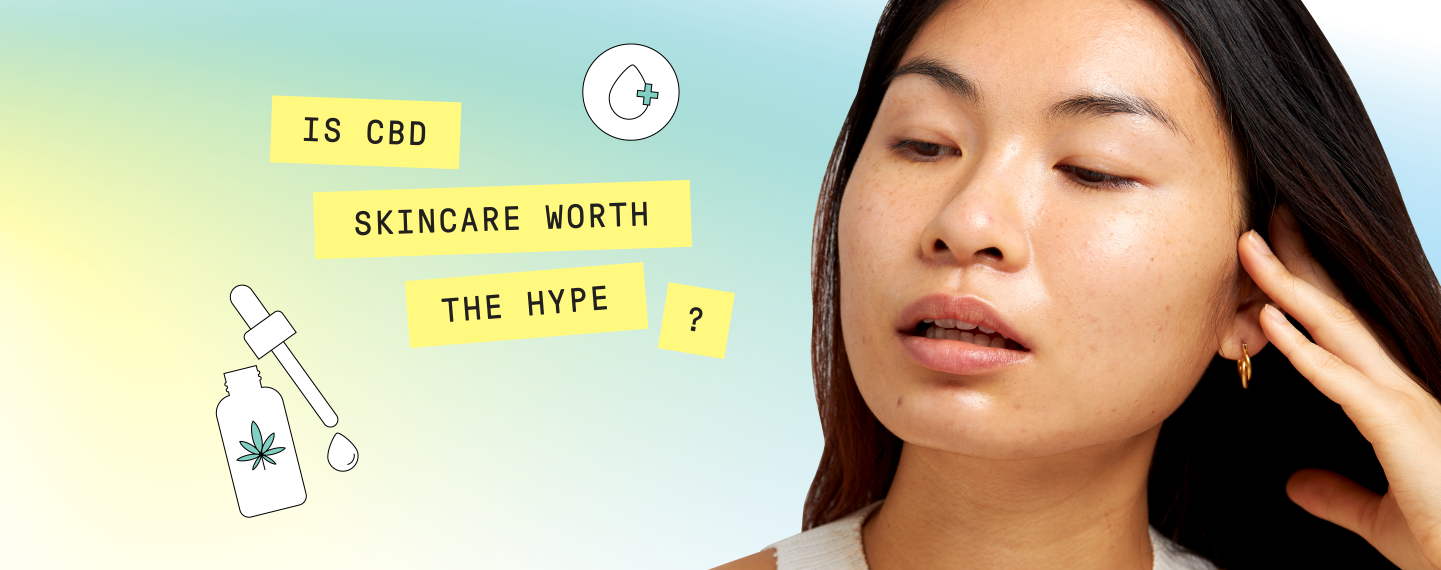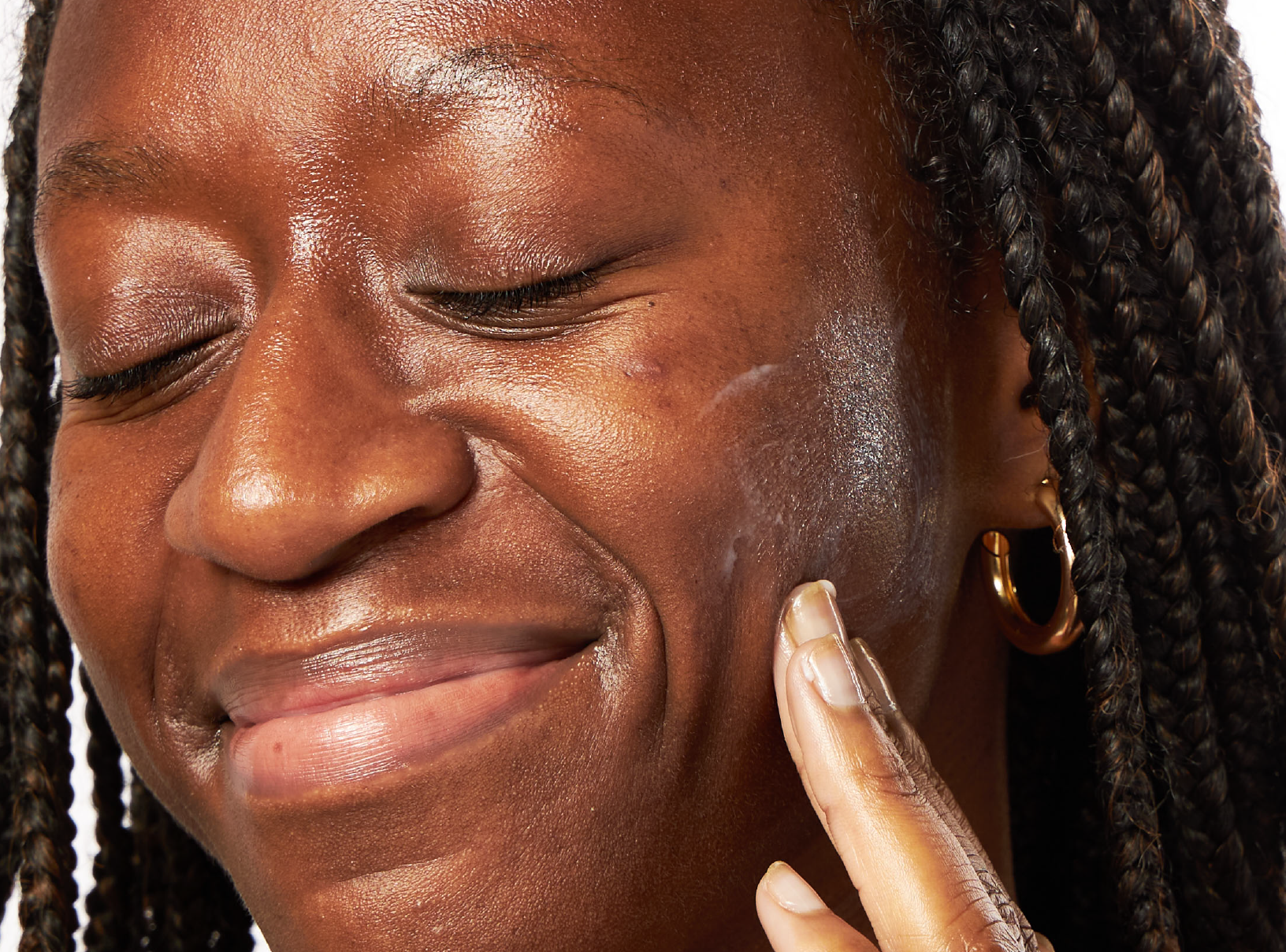Deep Dives
Is CBD Skincare Worth The Hype?


SHARE
Deep Dives
Is CBD Skincare Worth The Hype?
Medically reviewed by Aimee Paik, MD
Written by Annie Lam
Last updated 4/3/2022
If you're on top of the up and coming skincare trends, CBD is one of the most popular new ingredients in the industry. CBD can be found in a variety of different products these days: CBD oil, supplements, ointments, and more! If you've been wondering what this popular ingredient is and how it works, we're here to break down the truth.
What is CBD?
Cannabidiol (CBD) is a cannabinoid found in the cannabis plant. The ingredient used in skincare is commonly derived from the hemp plant or made in a lab setting.
CBD can be found in a variety of different products from ingestible supplements to topical CBD balm or creams for sore muscles. However, more brands have started to come out with CBD skin care products to get the benefits of this potent ingredient.
How is CBD used in skincare?
When looking at the ingredient list of a CBD skincare product, you'll likely see Cannabidiol (CBD) in the ingredient list. Unlike THC (Tetrahydrocannabinol), CBD does not have the psychoactive component that makes you feel "high."
Things to look for
Amount of CBD: The amount of CBD used in a product can vary as well. For example, the Saint Jane Luxury Beauty Serum contains 500 mg of CBD, whereas ELF's CBD Facial Oil has 100 mg of CBD. This details the concentration of CBD that the product contains, similar to percentages of active ingredients. Like most ingredients, stronger does not always mean better! It’s important to find what amount works best for you.
Type of CBD: There are three main types of CBD: Full spectrum, broad spectrum, and isolate.
Full spectrum CBD is a type of CBD that contains all of the beneficial compounds found in the cannabis plant: cannabinoids, terpenes, and flavonoids. Full spectrum does contain a very small percentage (legal maximum of 0.3%) of THC.
Broad spectrum CBD is the same as full spectrum except it does not contain THC.
CBD Isolate is the purest form of CBD and does not have any of the other compounds in cannabis.
Again, everyone��’s skin and needs are different, so find a type of CBD that works for you.
Hemp oil vs Hemp seed oil: CBD oil is sometimes called hemp oil. One important distinction is that hemp seed oil is not the same as hemp oil. Hemp seed oil comes from the seeds of the hemp plant, which do not contain CBD.
If you're looking for a CBD product, look for hemp/CBD oil or cbd extract in the ingredient list. CBD is most commonly found in beauty products like facial oils or a CBD cream.
What are the benefits of CBD skincare?
Now that we know what CBD is, let's talk about the benefits. It's important to note that there are limited studies done on the topical benefits of CBD. However, there are a few studies that show promising effects on the skin.
- A 2020 study suggests that topical CBD has an anti inflammatory property that can help with an inflammatory skin condition like eczema, psoriasis, or atopic dermatitis.
-Another study found that CBD could help with acne because it has anti-inflammatory and sebostatic effects, meaning it helps to inhibit excess sebum production. Reduced sebum production can help minimize the clogged pores that lead to acne. It’s important to note that this was an in vitro study that looked at the effect on cultured sebocytes. Clinical studies would be needed in order to confirm this finding.
Overall, the studies typically highlight that CBD can help calm inflammation, making it a potentially good option for sensitive skin or inflammatory skin conditions.
Should you add CBD to your routine?
While there are promising studies about CBD products, we wouldn't run out to buy a CBD product just yet. The reality is that CBD is a newer ingredient in the skin care industry so the studies are limited. While there are potential positive effects, we would still prioritize using clinically-backed ingredients like tretinoin to target acne or azelaic acid to reduce inflammation. These ingredients have been clinically tested and used for decades to treat acne and other skin concerns.
CBD skin care does seem promising, but we wouldn't call it a replacement for tried and true actives. Something to consider is using a CBD skin care product alongside an active treatment like retinoids. A 2022 study found that a retinol and cannabidiol combination topical provided results for fine lines/wrinkles with high tolerability. Again, more studies need to be done to see the true effects of CBD skin care, but it appears it could be a good complement to strong actives due to its anti-inflammatory and soothing effects.
Getting expert treatment for your skin
CBD skin care does seem like it has potential, but more studies need to be done to confirm the efficacy. Instead, we recommend opting for science-backed ingredients like tretinoin and azelaic acid to treat your skin concerns. If you're looking to get expert treatment for your acne, rosacea, or signs of aging, we've got you covered. We use clinically-proven, prescription-strength ingredients to effectively treat your skin concerns. Get started on your skincare journey with Apostrophe today.
Sources:
https://www.ncbi.nlm.nih.gov/pmc/articles/pmc7736837/
https://www.ncbi.nlm.nih.gov/pmc/articles/pmc4151231/
Shop this post

Finacea (azelaic acid)

Tretinoin
Like what you just read? Sign up for our email list to get the scoop on skincare science delivered straight to your inbox.

Deep Dives
A dermatologist shares his thoughts on the recent studies about benzoyl peroxide and benzene.
Read More
Education
What is milia?
What is milia? Today, we’re jumping into one type of bump that you may have heard about most commonly in infants — milia.
Read More
Education
Best moisturizer for acne-prone skin
If you have combination acne-prone skin, figuring out which moisturizer is best for your skin might be tough. In this guide, we break down the best moisturizer for combination, acne-prone skin.
Read More